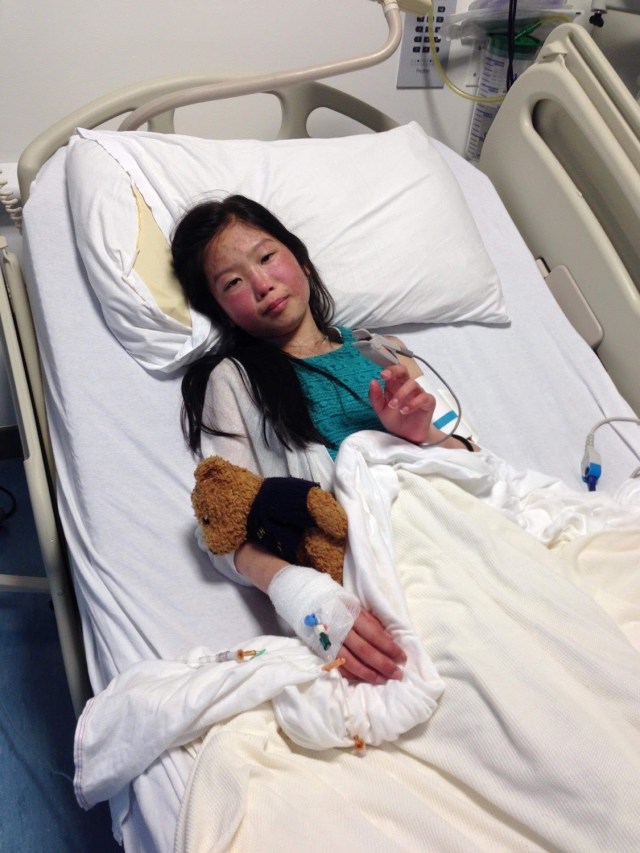In recent years, I have been very proactive in spreading awareness about Lupus – an autoimmune condition I was diagnosed with in 2014 (at 14 years old). By this point, I know my disease extremely well, where with limited sources – or ones that are more generalised for educational purposes – I find it important to share my individual experience. Whilst many have told me I shouldn’t let Lupus define me, I actually think it is important to address as a part of my identity. It is not something I can just take out or ignore, it impacts my life greatly. My immune system produces too many antibodies, often attacking healthy tissues which can result in inflammation, pain and damage to certain parts of the body. Whilst every individual experiences it differently, I suffer from extreme fatigue, concentration problems, muscle and joint pain, hair loss, memory loss, sun sensitivity, skin flare-ups and the possibility of organ failure. Because Lupus makes it difficult for me to do certain activities in life, it can be regarded as a disability. I do not talk about it to gain sympathy or pity from anyone, but so I can better understand myself. To use my position as someone who is comfortable talking about it to raise awareness about the reality in which I – and many others – live. To showcase the struggles of someone living with a chronic illness and the unseen battles I’ve had to face by using my experience since I was 14.
One thing I realised recently is I’ve never spoken much of my actual diagnosis – just what I have to live with afterwards. The reason for this is because I hardly remember it. When I was first diagnosed, I had already been practically unconscious for four months. During that summer, which would go on to change my life, I went on my usual holiday to visit my amazing family in Hong Kong, even went to Japan for the second time, where I do not remember the trip at all because I spent half of that time asleep. Once I came back to Aberdeen, I went to the hospital to do a blood test for something else, which then came back to the result that I was actually suffering from Lupus. I was immediately driven to Glasgow by ambulance (which I hardly remember) so I could see a consultant based there. The picture below was me waiting for an ambulance to take me there the day I was diagnosed. It resulted me in staying in hospital for one month and missing school for four months. I was half-conscious the entire time, I was offered a feeding tube for being severely underweight and was introduced to many medications (which I am still jugging and trying new things all the time). I started many types of tests, including so many blood tests I ended up having the my first of many procedures. Often, getting diagnosed with Lupus is rather slow because some of its symptoms are similar to other conditions. So, it was a relief to my family as the diagnosis answered a lot of questions for my parents, who I can’t even imagine the feeling of seeing me in such a weird state.
They finally had an explanation to:
- Why my blood circulation was so bad my hands would turn purple when I went outside for a long time
- Why I was so extremely slow and couldn’t walk for a long time
- Why my face had a massive rash all over it
- Why my concentration got significantly worse when I used to be able to do more and most of all
- Why my muscles were swelling up and my joints were sore all the time
- Why I was so tired all the time, which made it difficult for me to function

For most people, their life roughly begins when they first start forming memories. For me, that was at the age of 14. I have a severe mental block from before this age and can hardly remember any memory which occurred before that. For me, my childhood consisted of being in the hospital for months, praying I wouldn’t be spending it over Christmas. It was spending my entire 16th birthday waiting in the hospital for a consultation, followed by a bone scan and blood test. It was having to miss out on holidays with friends because they wouldn’t understand what I could or couldn’t do. It was getting diagnosed with a blood disorder through the post. It was doing constant blood tests, autopsies, bone scans, x-rays, ultrasounds, any type of test, just to ensure I was healthy (enough). It was making sure I didn’t overdo myself (which I am still heavily working on) so I don’t make myself more ill. It was missing out on school because I was bedridden. It was planning my time around my appointments so I could still have a life. It was saying ‘Yes’ to any medication that was offered so I could feel a little better, giving consent to doing any procedure to ease the pain, because I was and am still willing to do anything that will ensure I will live the best life I wanted to live – because I want to live.
Since my diagnosis, my life has been a constant rollercoaster. With Lupus, you could be doing everything right – eating healthy, exercising, taking care of yourself – but flare-ups will come out of nowhere. I could be perfectly active one day and bedridden the next. I could have clear skin and suddenly break out with rashes that are extremely sore. I could be playing table tennis – one of my favourite things in the world – with so much energy and aggression – due to me being an attacker – to needing to sit down because my muscles get sore or my legs feel weak. Whilst I 100% have rough days (like we all do), I also love the challenge. In a positive light, Lupus makes life more interesting. It offers me a different focus I never would have had if I didn’t suffer from a chronic illness. I’ve learned a lot through living this way and most importantly, about myself.
One thing I find extremely important is the acknowledgment of people with chronic illnesses and disabilities, including the ones which are invisible. Unless I was in the middle of a flare up where my eyes could be swollen through the rashes developing all over my face, over my arms so I couldn’t play table tennis or over my hands where I could no longer write, you could not tell I was living with a chronic illness. You would think I am just like you, can do the same things as you and expect me to be able to function normally when this is far from the case. This is the normality of society, but it does completely disregard those with hidden disabilities. There are many things I can’t do, where Lupus restricts and limits certain activities in my life. It is not a case of ‘you can do it’, ‘you can do anything’ – reality is I can’t do everything, but I can try. I won’t be able to lift heavy things, walk long distances or sometimes hold a steady conversation without zoning out or needing you to clarify something because it took me longer to grasp it. You never know what someone is going through and people are extremely judgey. So, I might need some help here and there, you might need to slow down both in speech and pace, you might need to understand that some people will find things more difficult than you do. It doesn’t make us any less than, it’s the truth of our disability.
I don’t expect anyone to ever understand what I am going through. I don’t even expect people to consider my hidden illness/disability at all. Though if you do, I will have the utmost respect for you. Don’t patronise us or make us feel guilty for finding life a little hard at times. Consider why people may struggle, acknowledge they might not be comfortable sharing it with you. Instead of judging, just accept you may be able to be of help and just do it.


